Happy Mthulula, Waste Free in 23 Malawi
Mobilizing Resources to Support Local Action that Prioritizes Inclusive Climate Justice
Meet Happy Mthulula, a 37-year old volunteer community coordinator and resource mobilizer with Waste Free in ‘23. She lives in the Zomba District, south of the capital of Lilongwe towards the southern end of Malawi.
Throughout this art and storytelling series, I’ve asked (almost) each ChangeMaker “Why do you do what you do? What is it about your upbringing or your experiences that compels you to serve, to make a difference?”
Happy’s answer echoes that of many other ChangeMakers: some combination of lived experience and a high degree of empathy calls her to serve.
I come from a patriarchal society as many African communities are. Being a woman, I experienced first hand how vulnerable communities are left behind in development initiatives. I decided to be their voice whenever I can. This is why I volunteer my time to try and give a voice and visibility to neglected communities.
She has witnessed the disproportionate negative impact that pollution and climate change has had on vulnerable populations. Happy points out that plastic waste affects those living in slums or those living in rural communities and are therefore not much of a concern for the authorities who are looking out primarily for those in higher classes. This is what drives her to advocate for inclusive climate justice.
Waste Free in ‘23 Climate Justice Journey
Climate issues have always fascinated Happy. She has always felt a compulsion to leverage her skills as a grant writer and organizer to be part of the solution to this specific problem that is disproportionately impacting vulnerable and disadvantaged populations. As a natural networker, she had been seeking organizations and people with whom she shares common environmental concerns. That’s when she found Waste Free in ‘23.
For my climate justice journey, Waste Free in ‘23 is the network I collaborate most with. This is because the volunteers in this network are professionals from all development aspects worldwide. We have engineers developing new clean energy technologies, climate justice advocates, and researchers on clean energy and many organizations worldwide interested to drive the climate justice agenda.
Waste Free in ‘23 is a peer-to-peer network that empowers individuals and communities to reduce the cost of recycling and processing municipal waste. Waste Free in ‘23 was created in January 2023 by the waste pickers, waste collectors and informal community residents in Nairobi. It has since expanded to Malawi and Uganda, providing expertise in resource mobilization and installation of new clean sustainable technologies to recycle all common trash in cooperation with organizations in three countries.
I met Dan, one of the volunteers at Waste Free in ‘23. We had the same outlook on waste management; especially how it is affecting the vulnerable communities. He and other volunteers at Waste Free in ‘23 are experts in different fields ranging from researchers to engineers. I thought, “Wow, I can contribute to this! Maybe I can help these hardworking people get funding and or resources for their work towards climate justice.”
In less than one year, the Waste Free in ‘23 initiative has enabled 10,000 homes to become waste free, created 100 jobs, and is currently preventing 3 tons a day of household trash from being burned, trucked or dumped. 300 kilograms worth of plastic trash is being removed from the oceans and recycled into reusable products on a daily basis.
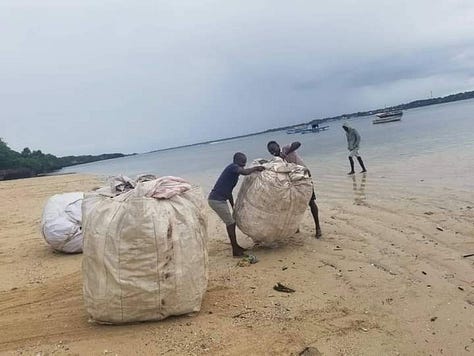
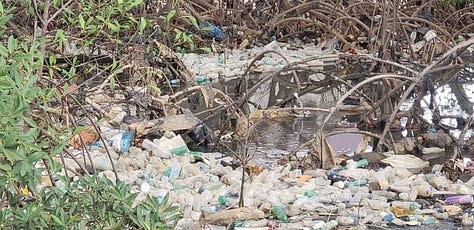
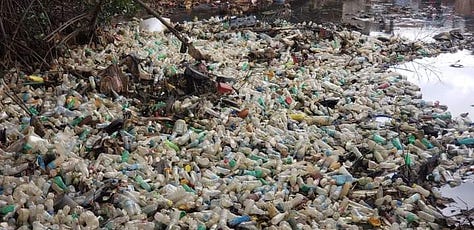
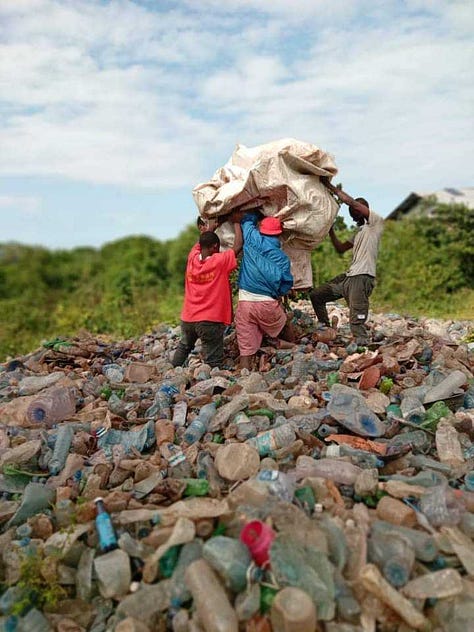
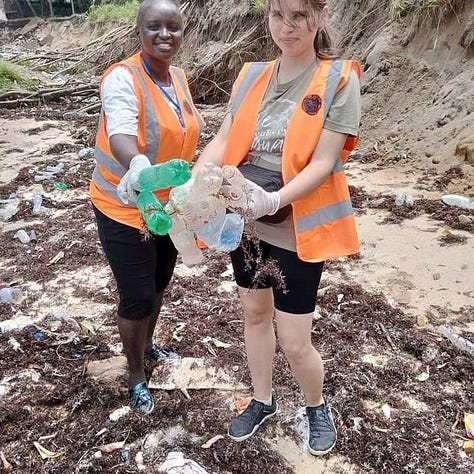

In my development work we are constantly doing advocacy campaigns on waste management and recycling. We also encourage community groups like the youth to participate in Black Soldier Fly Larvae cultivation (BSFL) to reduce household waste. A youth group in Mulanje Malawi is successfully cultivating BSFL as a result of our efforts at Waste Free in ‘23.
Waste Free in ‘23 points to BSFL cultivation as a “remarkable solution for addressing both food security and organic waste management.” Larvae are raised on organic waste from households and then become food for chickens. BSFL is considered a nutritious supplement and source of protein for chickens.
The youth volunteers are also gaining quite a bit of visibility on their work on climate justice through the Waste Free in ‘23 network. The network with few well-wishers has also managed to establish a few plastic micro-recycling centres in Kenya and Sierra Leone. These micro recycling centres recycle up to 300kgs of trash on a daily basis.
Micro Self-Funded Programming
Happy explains that as a Waste Free in ‘23 volunteer she is working with others across borders championing many projects and especially those that motivate the youth to take center stage in cleaning up the environment of plastic and household waste with zero to no funding.
These micro self-funded projects on recycling started in 2023 and are continuous because they are sustainably championed by the grassroots volunteer communities we work with in the communities.
In fact, Happy goes on to say that a $50 donation to a GoFundMe organized by a Waste in Free ‘23 volunteer will have a much greater impact than the same amount donated to a national or international nonprofit. Her fight, she says, is for “localization of aid.”
A Passion for Mitigating Plastic Waste Ocean Pollution
Even though Happy does not live near the ocean, she has become more passionate about the plastic waste polluting oceans especially in Dolphin Bay Kenya and Freetown Sierra Leone.
Dolphin Bay, Wasini Coast, Kenya
The negative impacts of climate change are most devastating to the poor communities who have no protection against them. In Wasini Bay, Kenya, communities depend on fishing and tourism for economic sustainance. However plastic waste in their area has completely destroyed their living with people going hungry and with no income.
An article Kenya’s The Standard, highlighted the problem.
The massive plastic waste that washes ashore on the island, ends up in the mangrove forest in Mkunguni, causing deaths of fish and turtles in their numbers. The fish and turtles have also begun to migrate in search of cleaner and safer breeding grounds. Standing to lose as a result are more than 200 fishermen and 3,000 households that solely rely on tourism and fishing for livelihood on the Island that lies at the periphery of Kwale County.
With my fellow volunteers at Waste Free in ‘23 we try as much as possible to advocate for beach clean-ups as well as recycling of the plastic waste into profitable by-products.
Bilal Abdalla of Dolphin Bay Safaris (see above Youtube video on Wasini Island) and Roseline Isata Mansaray’s Freetown Beach Cleanup efforts as part of Fridays for Future Sierra Leone are some of the great youthful volunteers doing voluntary work cleaning up plastic waste from the waterways of coastal Kenya and Freetown, Sierra Leone respectively.
Hopes for a Waste-Free Future
Happy’s next project is to find funding for the youthful ChangeMakers who are cleaning up the oceans in the most ignored marine spaces of rural Africa with little to no funding.
I wish we could get a project where they can have a mobile recycling boat that will serve as a mobile recycling centre, collecting plastic waste directly from water sources and shorelines whilst also serving as a platform for climate justice education, advocacy and demonstrations on waste management, recycling practices and environmental conservation.
She is most proud when she sees people taking climate change seriously.
I am also very proud of what is being achieved by my friend Bilal in Dolphin Bay. The youth there are doing great work cleaning up the mangroves voluntarily.
It’s often the ChangeMakers that are lifting up others and not taking any credit for themselves. So, I asked
, the Australian permaculturist and climate change advocate who recommended Happy to me to interview, to tell me how Happy has impacted her own work. Here’s what Jessica said:Happy is far too humble. She has empowered our projects by helping us write grants, create powerpoints and she has given general feedback on grant viability -- all in her spare time and from the generosity of her heart. She works with professionalism and grace, and I feel very privileged that Happy has been on our team, and I hope that will continue.
Happy’s Advice for Aspiring ChangeMakers
Her advice to oher ChangeMakers is to focus on action:
This is the time to do something about climate change, be waste-free and let’s recycle!
Who is Happy’s ChangeMaker?
Roseline is a young lady from Sierra Leone who is successfully championing conservation efforts in Sierra Leone. She is also the founder of Fridays for Future Sierra Leone. Roseline inspires me because even with no funding she is able to mobilize the youth, students and the communities around Freetown Sierra Leone to take centre stage in climate justice interventions. Other people are pushed through donations and or funding to carry out such initiatives but Roseline does it free of charge… now that’s dedication and passion. The fact that she is just a young feminist leading such a strong female led movement is also inspiring.







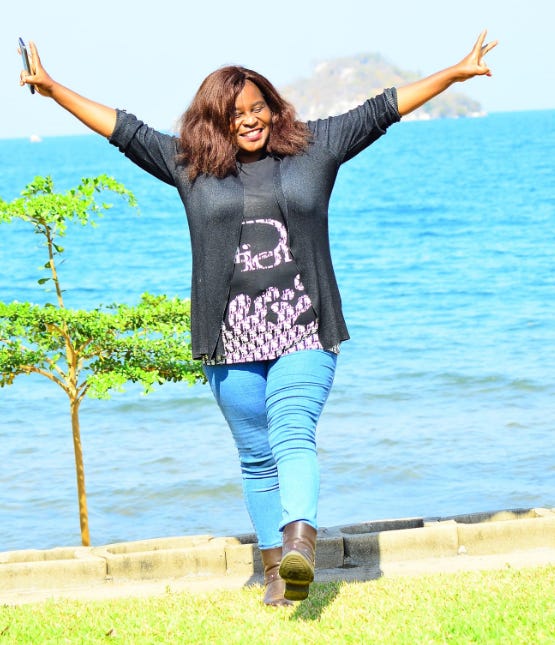


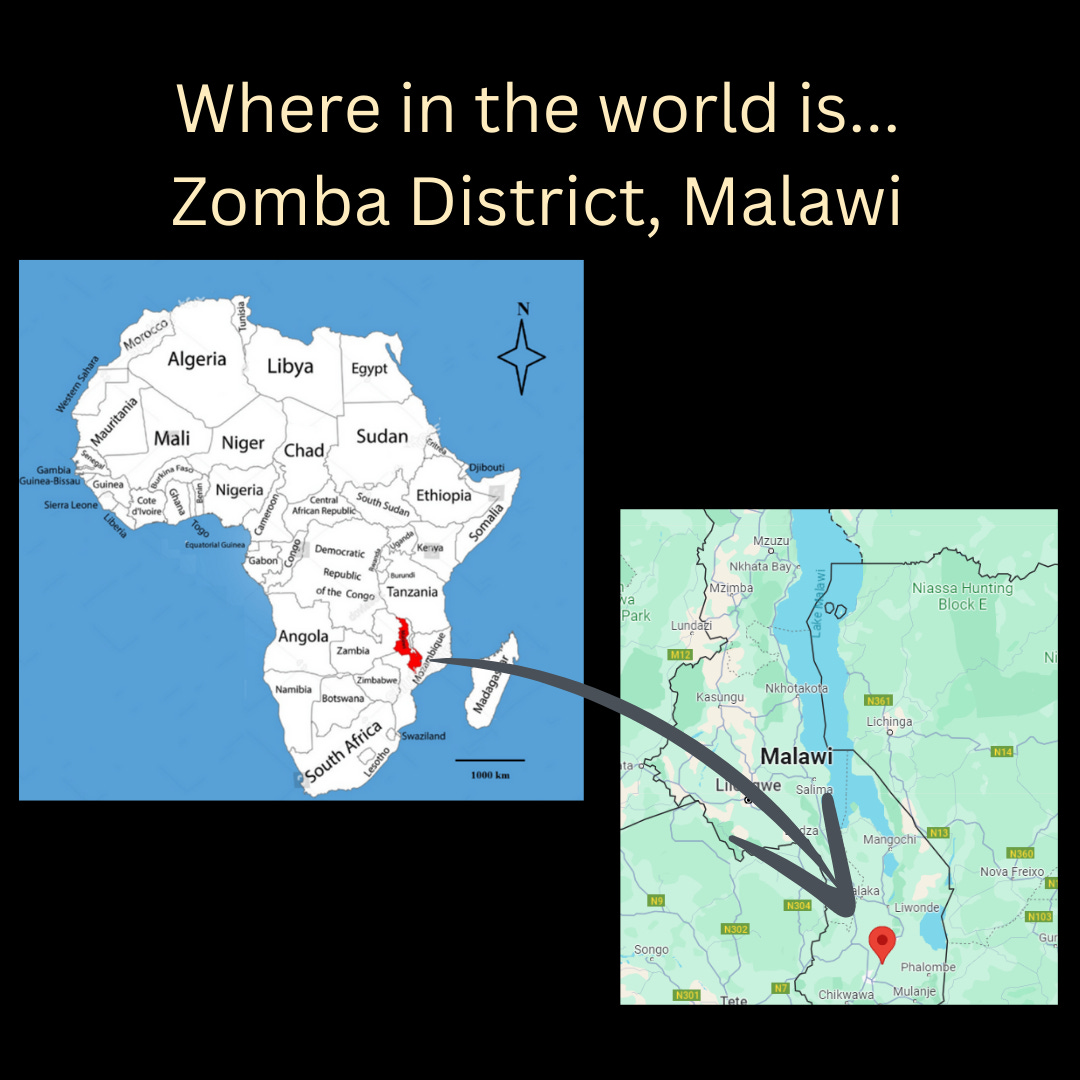
Brilliant to see this project in Malawi!
@wastefree23 is the solution for a brighter future.